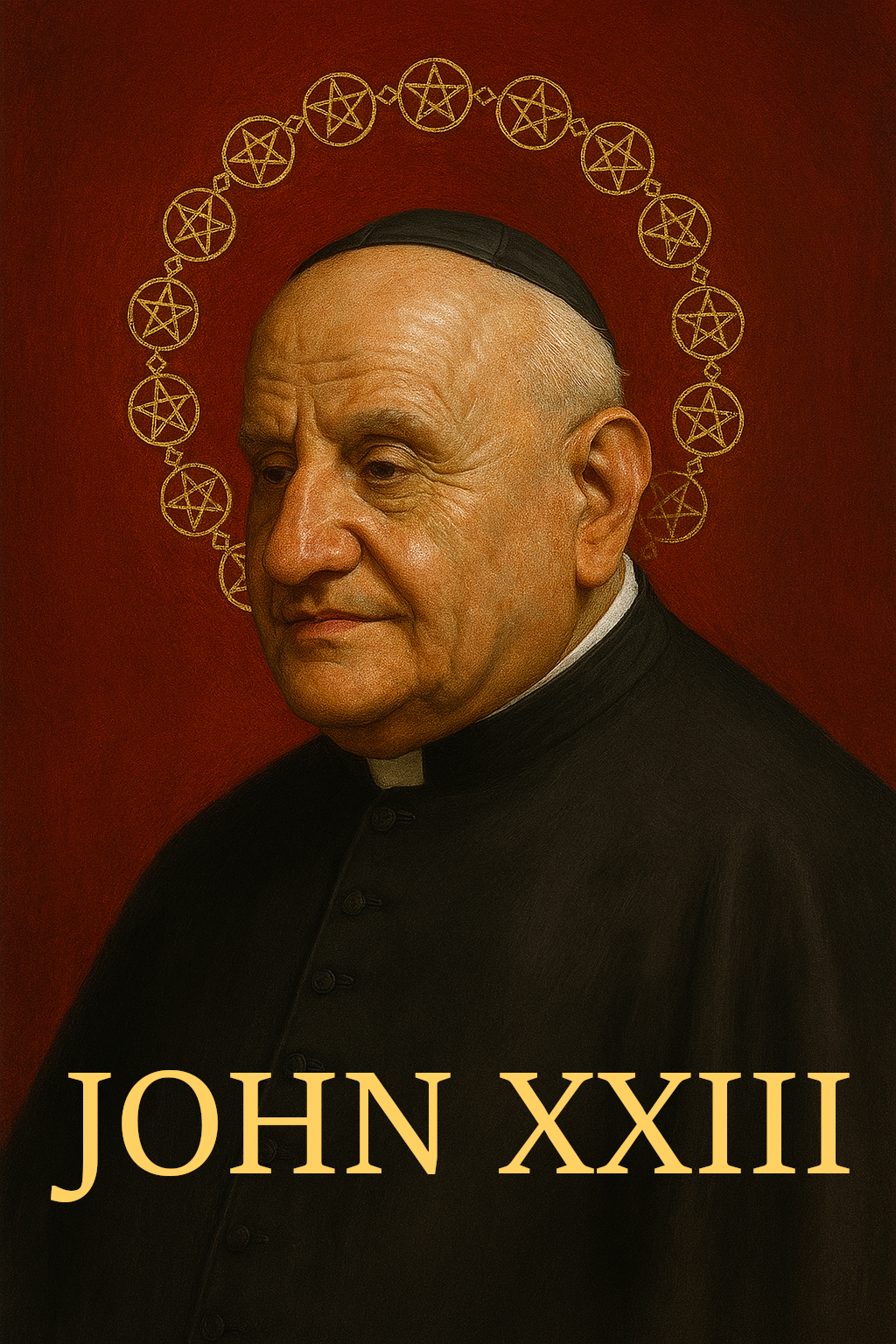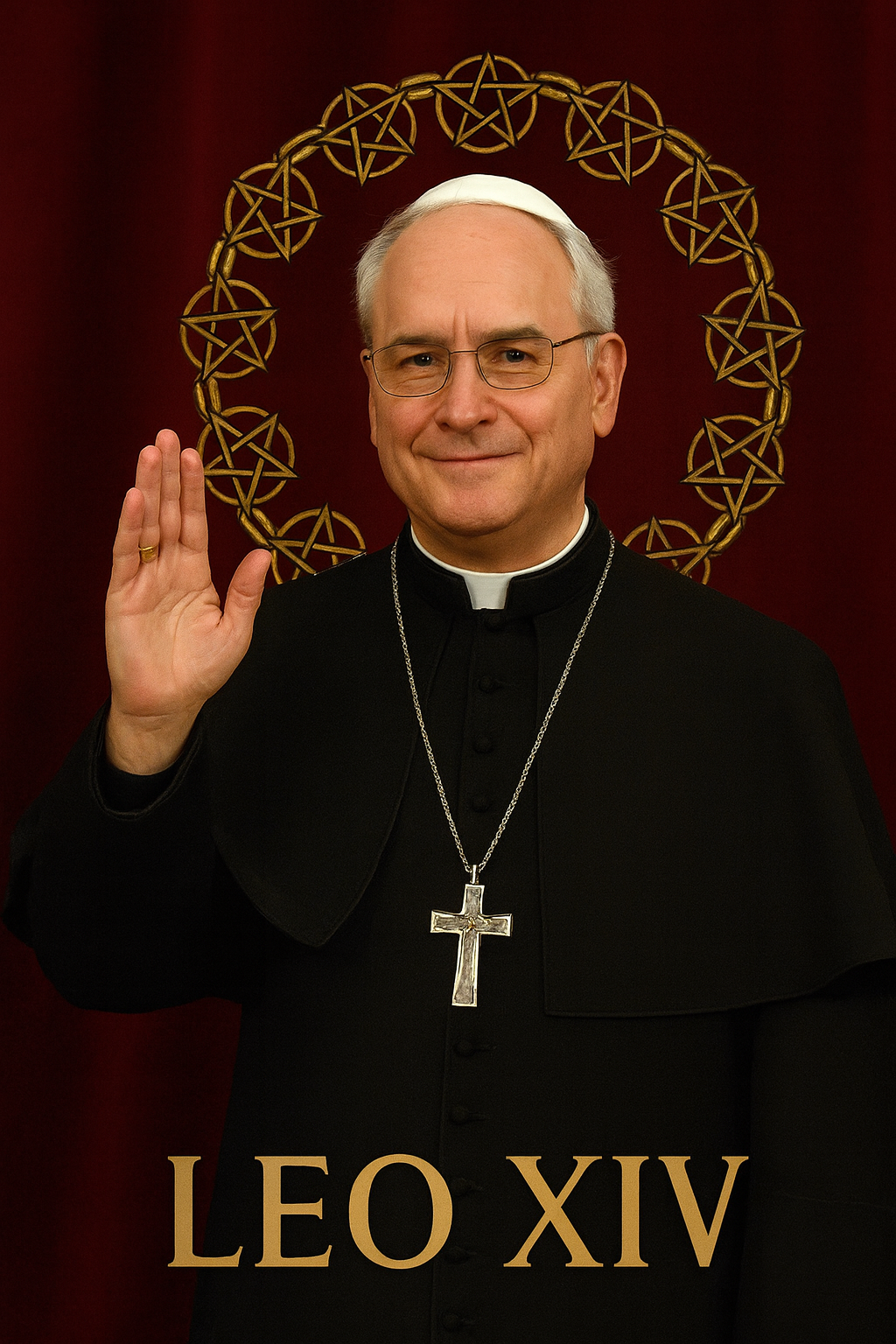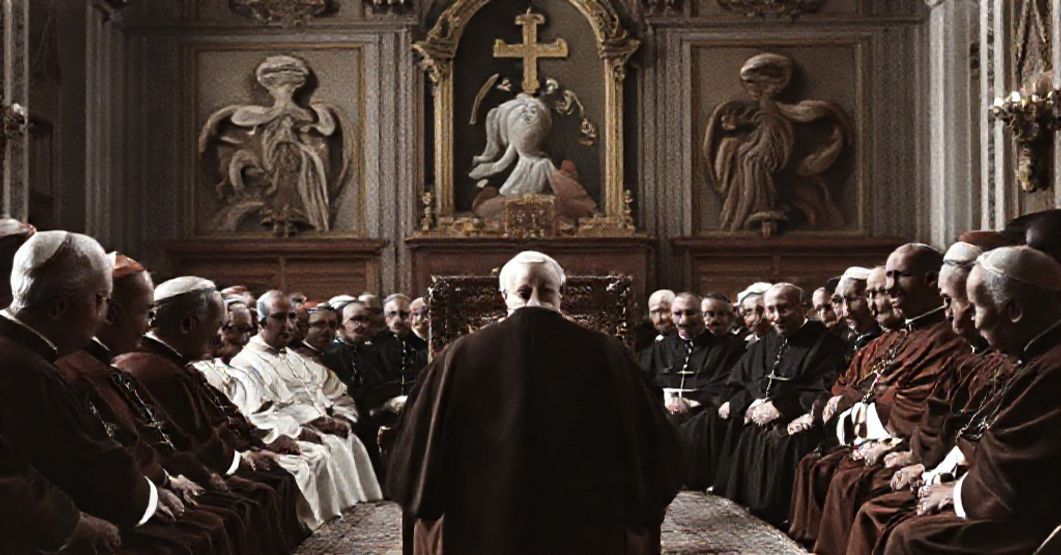Antipopes of the Antichurch



















Timeline of this heretical pontiff
Encyclical Letters
+ 15 posts1959
+ 7 posts1961
+ 4 posts1962
+ 2 posts1963
+ 2 postsApostolic Exhortations
+ 3 postsApostolic Constitutions
+ 93 posts1958
+ 6 posts1959
+ 87 postsMotu Proprio
+ 15 posts1958
+ 1 posts1959
+ 1 posts1962
+ 11 postsApostolic Letters
+ 151 posts1958
+ 4 posts1959
+ 63 posts1960
+ 78 posts1961
+ 1 posts1962
+ 4 posts1963
+ 1 postsSpeeches
+ 99 posts1958
+ 2 posts1959
+ 26 posts1960
+ 29 posts1961
+ 16 posts1962
+ 24 postsMessages
+ 6 posts1959
+ 4 postsHomilies
+ 4 postsLetters
+ 152 posts1958
+ 1 posts1959
+ 48 posts1960
+ 32 posts1961
+ 31 posts1962
+ 30 posts1963
+ 10 postsNot categorized
+ 1 posts1958
+ 1 postsNews feed


Allocutio Ioannis XXIII ad Ordinem Benedictinum (1959.09.25)
John XXIII’s allocution of 25 September 1959 at the Anselmianum on the Aventine is an apparently pious exhortation to Benedictine abbots and monks: it recalls the historical merits of the Order, praises “ora et labora,” extols the Divine Office and liturgical prayer, commends studies, education, missionary work, and unity of the Benedictine family, and urges fidelity to St. Benedict while being open to “new technical inventions” and “new apostolic initiatives.” Behind this mild, mellifluous monastic tableau stands the inaugural program of the conciliar revolution, cloaked in liturgical incense: a subtle displacement of supernatural Catholic militancy by a placid, horizontal, adaptable spirituality perfectly fitted to the coming neo-church.


Allocutio Ioannis XXIII (1959.10.13)
John XXIII’s address to the clergy and alumni of the German College of Santa Maria dell’Anima on the centenary of its juridical erection by Pius IX is, at first glance, a courteous panegyric: praise for the College’s history, gratitude for its contribution to dioceses, exhortations to fidelity, learning, virtue, and pastoral zeal, crowned by an “apostolic blessing.” Beneath this harmless exterior, however, stands a programmatic signal: the appropriation of pre-1958 Catholic prestige to legitimize the nascent conciliar revolution, a sentimental, horizontal, humanistic vision that carefully avoids affirming the rights of Christ the King, the necessity of doctrinal militancy against error, and the supernatural conditions of salvation. This seemingly pious allocution is thus an early stylistic manifesto of the coming neo-church: polite, decorative, and already internally displaced from integral Catholic faith.


Allocutio Ioannis XXIII ad Collegium Americanum (1959.10.11)
On October 11, 1959, John XXIII delivered a festive allocution at the Pontifical North American College in Rome, marking the centenary of the seminary. He extols the College’s history, praises the hierarchy and faithful of the United States, emphasizes institutional growth, academic and technical progress, and charitable initiatives, and presents the College as a model of “loyal collaboration” between hierarchy and people under “God’s Providence.” He highlights Roman formation as a unifying ecclesial center and closes by announcing procedural advancement in the cause of Elizabeth Seton, all in a tone of congratulatory optimism and civic-religious harmony. From the perspective of integral Catholic faith, this speech is an early and eloquent manifesto of the conciliar revolution: naturalistic, sentimental, ecclesiologically hollow, and oriented toward a Church reconciled with liberal America rather than subjected to the social Kingship of Christ.


Allocutio Ioannis XXIII (1959.12.14)
The Latin allocution of John XXIII of 14 December 1959, delivered in secret consistory, announces the creation of new “cardinals,” surveys the first year of his reign, exalts international visits and sentimental devotions, laments social and geopolitical problems, and presents with great optimism the coming Roman Synod and the planned “Ecumenical Council” as instruments for the renewal and “youth” of the Church. It is precisely in this apparently serene, pastoral discourse that one perceives the programmatic shift from the Catholic Church of Christ the King to a conciliatory humanistic association preparing the conciliar revolution.
Varia
Announcement:
– News feed –implemented
– Antipopes separate web sites with their all documents refutation – in progress
